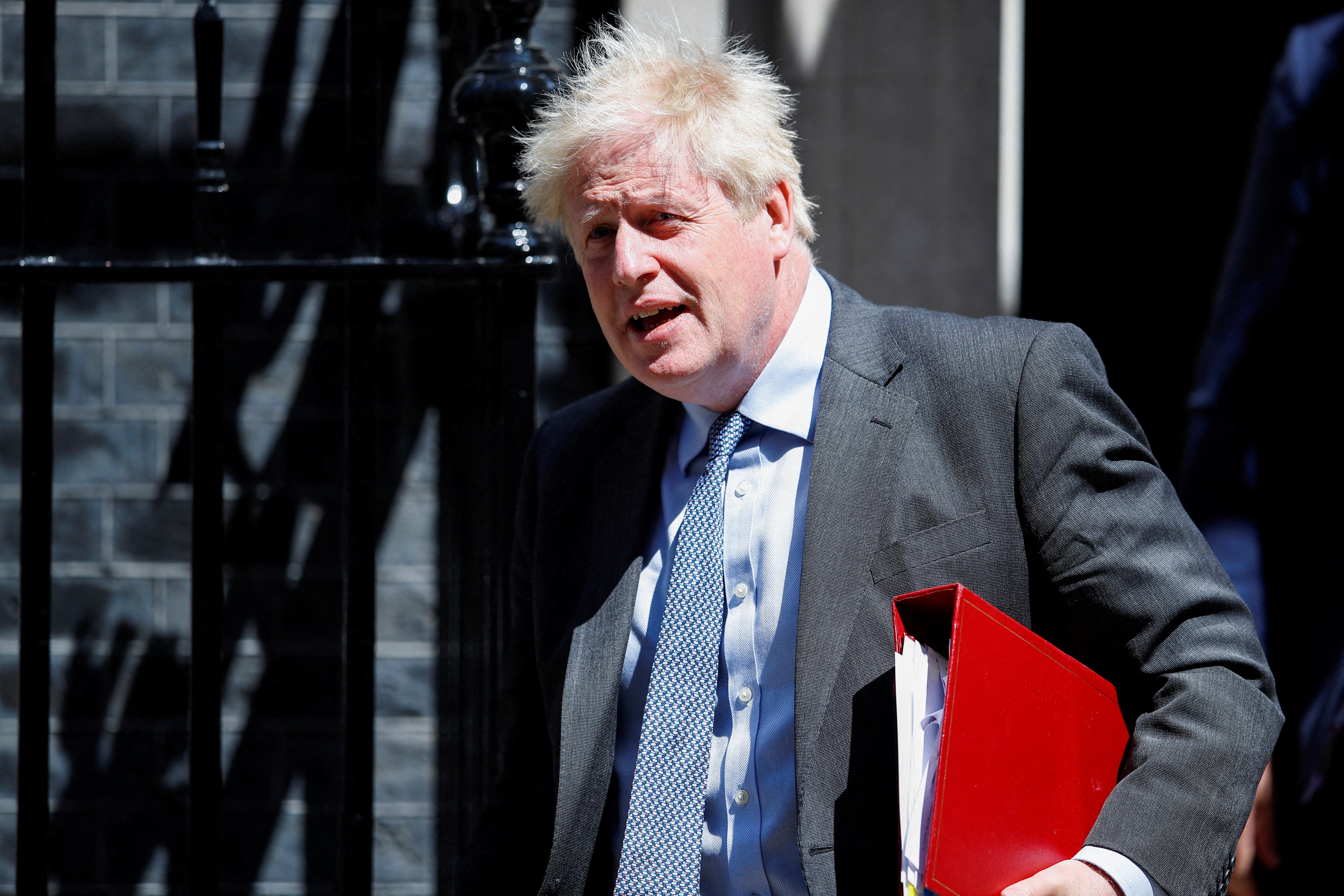Our government seems to be living in a world of make believe
The prime minister is resolutely upbeat – delusion is probably the only way to escape the encroaching crisis, writes Chris Blackhurst


The only surprising aspect of Lord Geidt’s resignation as the prime minister’s ethics adviser (even writing that job description provokes laughter) was that it took so long.
We are truly living in parallel universes at present. Boris Johnson and his sycophantic supporters in their world; and the rest of us in ours, the one based on reality.
This is a government led by someone who trots out untruths and hyperbole. They do not seem to perturb him, not one jot. They trip off his tongue with ease; he does not even pause for breath.
Ask an awkward question and back comes a piece of boosterism; accompany him on one of his ridiculous trips to a factory, laboratory, where he dons a high-vis jacket for the watching lenses, and you will hear more nonsense.
He’s now letting the cameras into the beginning of his cabinet meetings, which marks an opportunity for yet more grandstanding. Out pour phrases like “world-class”, “world-beating”, “best in the world”. Alongside, his ministers fix their mouths in rictus grins.
Anyone who dares to criticise is derided as “a leftie”. Britain, we’re told has “the fastest-growing economy” in the G7. Yes, that’s because we got clobbered more heavily in the first wave of the pandemic and the bounceback was more marked.
More pertinently, the Organisation for Economic Co-operation and Development (OECD) predicts Britain’s economy to be the worst-performer next year of any developed country, except for war-starting and sanction-hit Russia. OECD? Bunch of socialists, what do they know?
It’s hard to imagine whose meetings are notable for the most nodding heads around the table: Johnson’s or Vladimir Putin’s.
On three key criteria we’re down: domestic expenditure is suffering as inflation kicks in and real incomes fall; exports are tough, not least because we’ve removed our ability to trade freely and easily with the huge bloc on our doorstep and have not replaced that loss with the promised trade deals; and investment is stalling as businesses take stock and try and assess what the post-Brexit, post-Covid, post-war, post-energy shortages, climate looks like.
King specialises in saying very little, so when he does say something, it is worth listening to
We’re down but Johnson is up; he’s resolutely upbeat. Whatever happy pills he is on, he should distribute them nationally – delusion is probably the only way to escape the encroaching crisis.
The UK had a productivity problem long before we exited the EU. What was supposed to happen, according to the Brexiteers, was that an independent, newly liberated UK would sweep all before it, striking agreements with other countries that would be the envy of our former EU partners, tearing up red tape to release our pent-up, inherent enterprise instincts.
There is little meaningful evidence of this. Where there is plenty of evidence is of distractions. Illegal immigrants will be transported to Rwanda; imperial measures are to be revived; people on benefits will be encouraged to buy their council homes (as if – in the middle of the soaring cost of living).
One wise bird is Lord Mervyn King, the former Bank of England governor. King specialises in saying very little, so when he does say something, it is worth listening to. Now he has pronounced. “Although rarely used, the governor’s eyebrows remain part of the Bank of England’s armoury. Since I left in 2013, mine have been resting. But the latest inflation rate of 9 per cent led them to rise sharply.”
Before the Bank’s Monetary Policy Committee met and increased rates by a quarter per cent, King said: “Time to have a word with those members of the Monetary Policy Committee (MPC) who only last year were keen on negative interest rates.”
King then, would be disappointed, perplexed and annoyed even (if his face allowed) by the decision to go for 0.25. Clearly, he would have been in the minority on the committee who were advocating for 0.5.
The fact that the Fed raised interest rates in the US by 0.75 and the MPC revised its own inflation forecast higher still, to 11 per cent, would only have fuelled his frustration. As one City analyst said: “The Bank of England has bottled it.” The current governor, Andrew Bailey, and his colleagues give the impression of drinking the Johnson Kool-Aid.
King appears to think so too. Writing in The Spectator, King said: “Our leaders need to give us a clear narrative explaining why recent events will inevitably lower our national standard of living, how that burden will be shared, why it is important to bring inflation down, and why measures to raise economic growth and reduce regional disparities will take many years to come to fruition but will work only if we make a start now.”
The UK, he said, faces “a difficult couple of years, reminiscent of the 1970s.” King added: “A legacy of Covid is that around half a million people have dropped out of the labour force. Their return would ease inflationary pressures and boost output. But there is no pot of gold at the end of the rainbow.”
These aren’t words written lightly; they’re loaded with meaning. “Our leaders” – Johnson and others, and yes, Bailey. “A clear narrative” – versus the twaddle we’re asked to digest by this government. “No pot of gold at the end of the rainbow” – we’re being sold something that does not exist, it’s magic, a fairy tale.
Presumably, King will join the growing ranks of disbelievers. “Off with their heads!” said the Queen of Hearts in Alice in Wonderland. Alice finds herself in a fantasy world; doubtless, Johnson and his acolytes would wholeheartedly approve.
Join our commenting forum
Join thought-provoking conversations, follow other Independent readers and see their replies
Comments